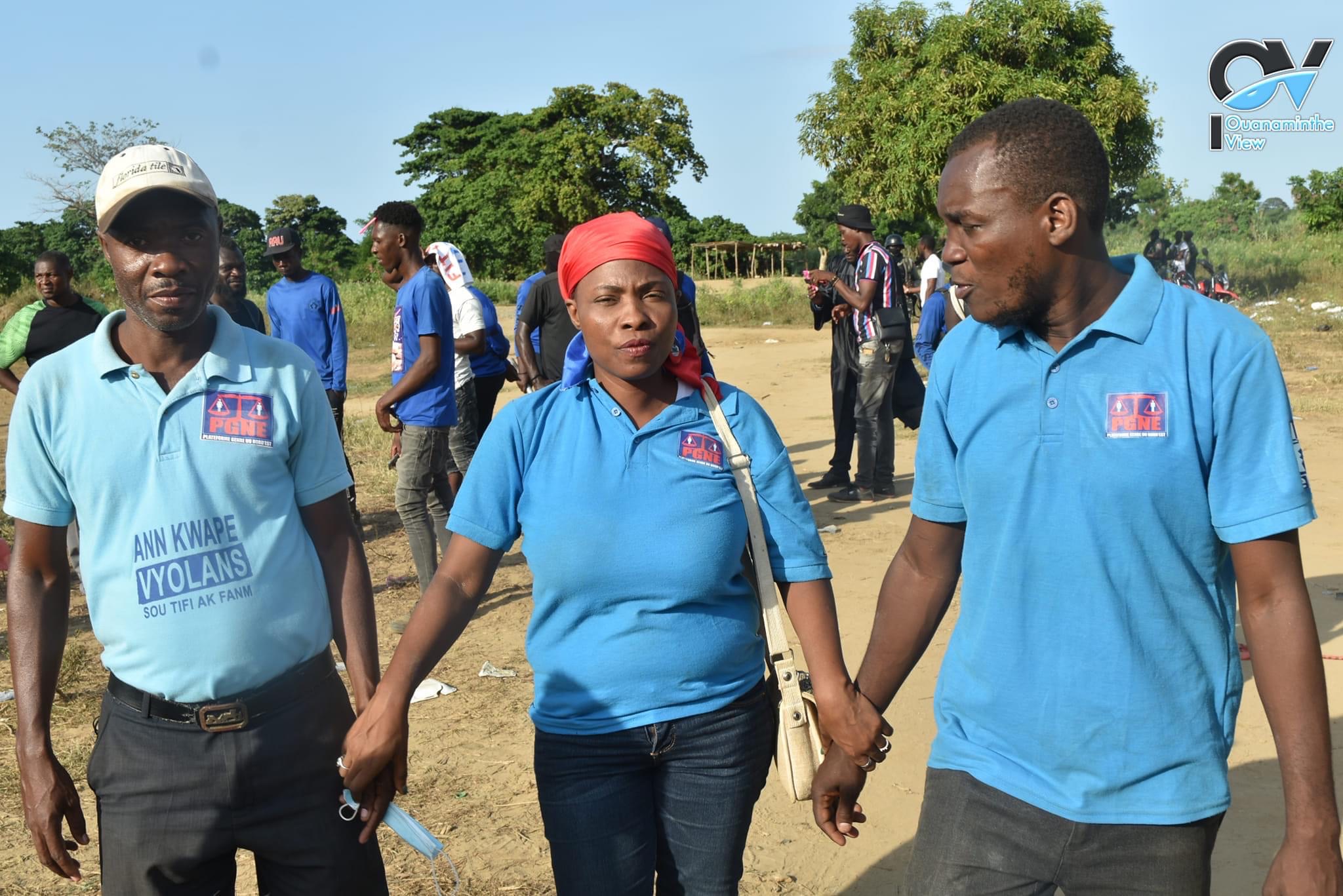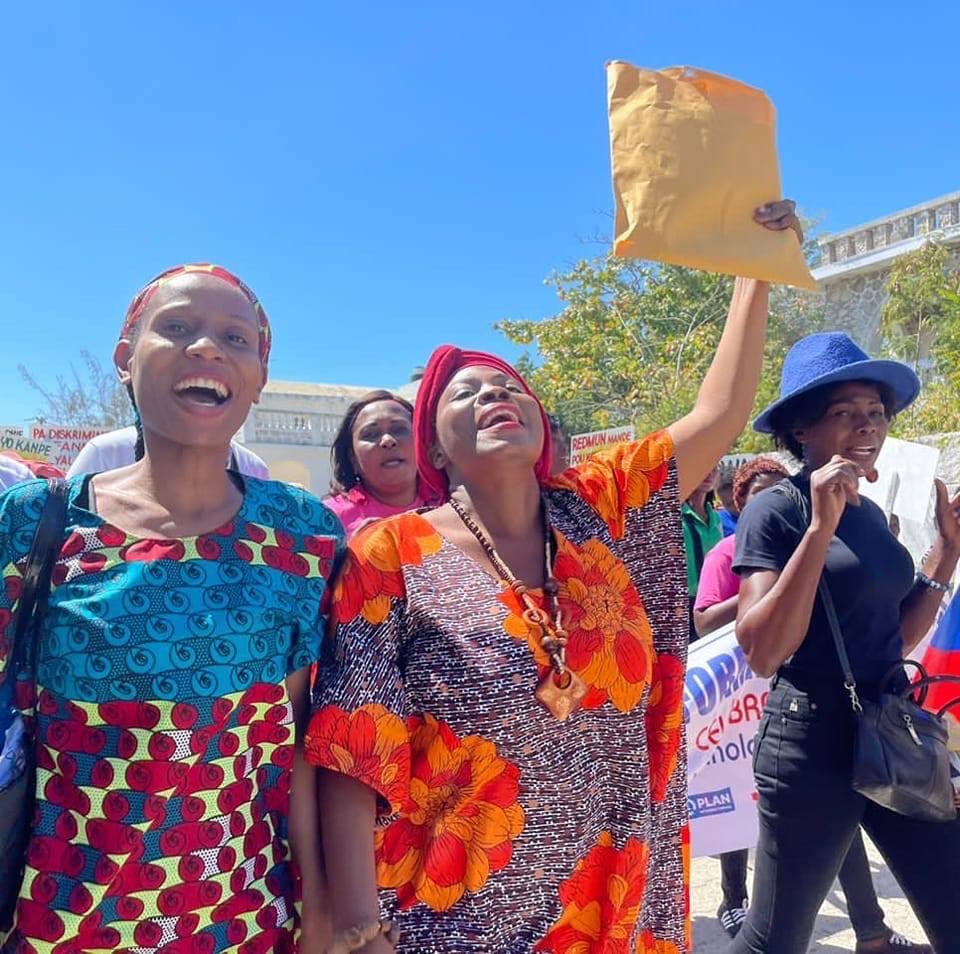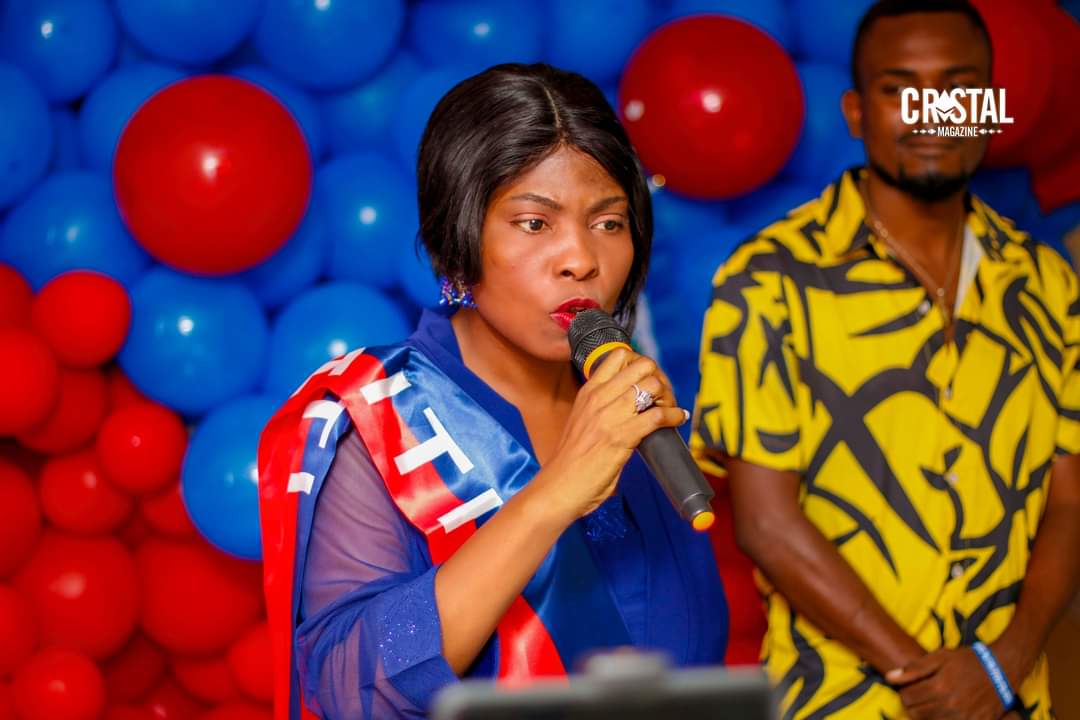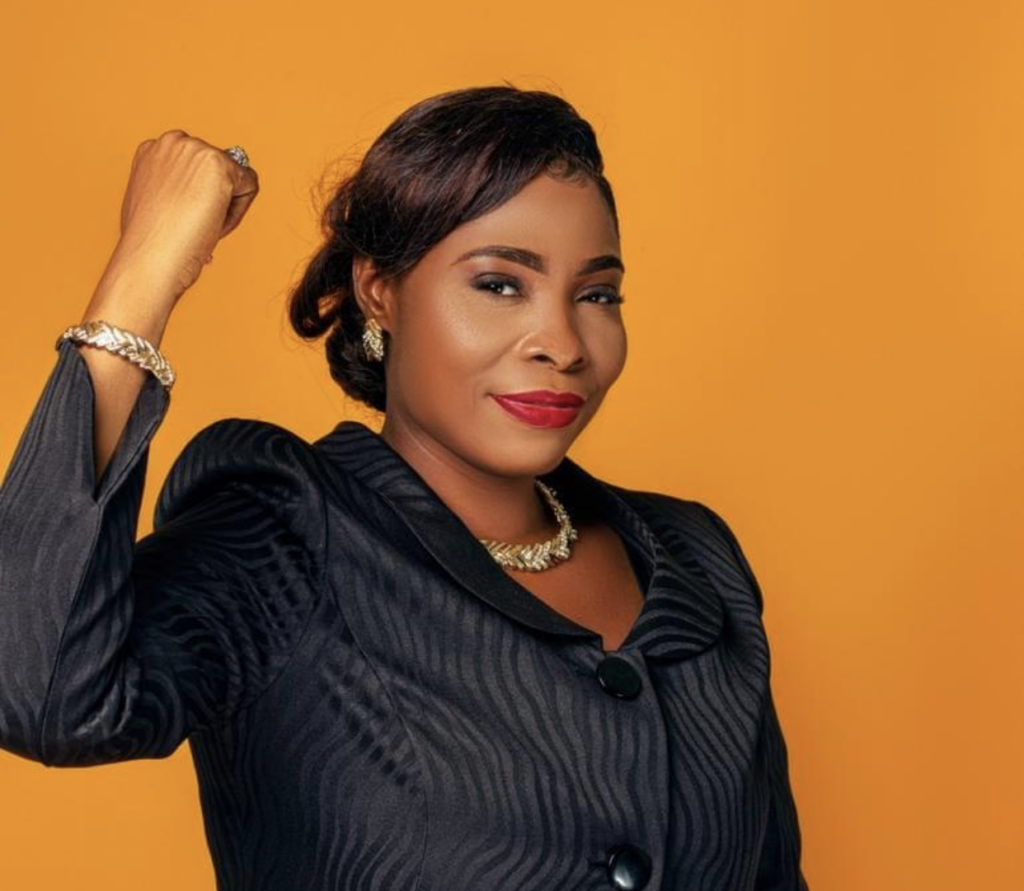“If women don’t have inner peace, communities cannot live in peace. In Haiti, that means ensuring that survivors of gender-based violence have access to adequate support to become changemakers in their communities.”
Jesula Blanc is a lawyer and women’s rights activist from Haiti who coordinates the North-East Gender Platform (PGNE), a network of civil society organizations supported by the United Nations Women’s Peace and Humanitarian Fund (WPHF) working along the Haitian-Dominican border to tackle gender-based violence and enhance the protection of vulnerable women and girls.
“Women like me – brave, resilient, and determined – are fueling the feminist movement in Haiti, filling the gaps left by government actors and reaching the most vulnerable and marginalized groups.”
Made possible through a generous contribution by USAID’s Bureau for Humanitarian Assistance (BHA), WPHF – in partnership with UN Women Haiti – is supporting Jesula and her organization to provide multidisciplinary services, including medical, psychosocial and legal assistance, to survivors of gender-based violence and migrant women and girls across northeastern Haiti. In addition to providing temporary accommodation to these groups, PGNE is also conducting awareness-raising campaigns and organizing trainings in gender-responsive emergency preparedness, economic empowerment, conflict resolution, organizational strengthening, and project management.

Since 2017, Jesula has been working at the forefront of Haiti’s escalating political and humanitarian crises, ensuring that survivors of gender-based violence have access to lifesaving care, immediate psychosocial support, and legal referral services. Photo: Courtesy of Jesula Blanc
Each case that Jesula and her colleagues respond to is unique. Whereas some women only require a few sessions with PGNE’s team of psychologists and social workers, survivors of sexual assault, particularly rape, always need urgent medical attention and are subsequently referred to a lawyer, who can help them report the crime to authorities. Without this end-to-end support, most women would probably remain silent after the assault, fearing the stigma associated with it and feeling too overwhelmed to navigate the legal system, which remains complex and expensive.
“Our project with WPHF is making women survivors feel seen, supported, and understood. They’re trusting us to improve their lives and uphold their rights.”
Born in Ouanaminthe, Haiti, one of the major border crossings to the Dominican Republic, Jesula soon became familiar with the dire situation women and girls endure when they migrate to the DR in search of safety and better lives. Regardless of the route they take, they are highly exposed to harassment, sexual violence, human trafficking, and kidnappings at the hands of gang groups, who increasingly use rape as a weapon of war to perpetuate instability in local communities, especially in Haiti’s capital, Port-au-Prince.

From Mexico to Senegal, Jesula has represented her organization in several feminist spaces over the last years, advocating for the rights of vulnerable women and girls and amplifying their voices at the global level. Photo: Courtesy of Jesula Blanc
In the face of this alarming situation, grassroots women’s organizations have proven to be the best placed to reach those bearing the brunt of violence and instability and swiftly respond to their most urgent needs. Serving as support systems for women and girls at the forefront of Haiti’s escalating crisis, these organizations are leveraging their networks and local expertise to ensure survivors have access to specialized support and economic opportunities to become active members of their communities.
“As women-led civil society organizations, our communities trust us and listen to us. We’re women, which means that we fully understand what it means to be vulnerable. So who better than us to recognize our own struggles and know what we’re capable to achieve?”
As with the women she helps every day, Jesula is the daughter of survivors. Almost 90 years ago, her father – born in the Dominican Republic – and his family were forced to flee into Haiti following the Parsley massacre, a week-long mass killing of Haitians living along the Dominican-Haitian border. It was this episode in her family’s past, as well as her experience growing up in a violence-torn region, that pushed her to become a lawyer and dedicate her life to promoting the rights of women and girls, both in her country and around the world. Over the past years, Jesula has become a key pillar of the feminist movement in Haiti, pushing forward a series of initiatives and demands to decriminalize abortion, provide free medical certificates to survivors of all forms of gender-based violence and recognize concubinage (cohabitation) as a lawful type of union that grants women important family, property, and land rights.
“I became a lawyer because I wanted to make sure that women’s voices were heard, that their rights were respected, and that their demands were met.”

Born in one of Haiti’s most vulnerable regions, Jesula has dedicated her entire life to improving the lives of those who continue to bear the brunt of the country’s escalating violence: women and girls. Photo: Courtesy of Jesula Blanc
A champion of transnational activism, Jesula strongly believes that the international community can make a huge difference in bringing grassroots activists together, advancing women’s economic security, and fostering collaboration among community-based organizations working to advance the rights of women and girls. For her, investing in women is, above all, providing them with the right opportunities, spaces, and platforms to raise their voices, showcase their impact, and draw attention to their unique added value as peacebuilders, humanitarians, and human rights defenders at the local level.
“The challenges we face are countless, but so are our strategies to get around them. We’re always moving forward because it’s up to us and no one else to drive change in our communities.”
